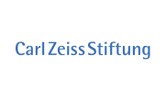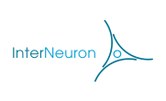Antonio Fernandez Ruiz: Hippocampal cellular diversity supports flexible computational demands
| When |
Apr 05, 2022
from 05:15 PM to 06:00 PM |
|---|---|
| Where | Zoom Lecture. Meeting ID and password will be sent with e-mail invitation. You can also send an e-mail to Fiona Siegfried. |
| Contact Name | Fiona Siegfried |
| Add event to calendar |
|
Abstract
Animals use memories of previous experiences to guide behavior in a flexible manner. During behavior, hippocampal principal cells are tuned to specific locations in the environment (‘place cells’). The same cells that encoded recent spatial experiences are reactivated during sleep and rest periods, coordinated by synchronous network events known as sharp-wave ripples (SWRs). The sequential activation of hippocampal place cells during behavior and their subsequent reactivation during ‘offline’ periods are considered one of the cellular hallmarks of memory.
Recent studies have highlighted that hippocampal principal cells, traditionally considered as a highly homogeneous cell type, are indeed very diverse in their morphology, physiology and connectivity. However, most studies on the hippocampal mechanisms of memory to date did not take into account this cellular diversity. We hypothesize that it is precisely the functional diversity of hippocampal principal cells that supports its remarkable mnemonic capacities.
In this talk, I am going to present recent evidence supporting this hypothesis. We recorded and manipulated hippocampal and cortical neuronal ensembles in rats performing navigation and learning tasks. We found that hippocampal cell types express different spatial codes and synchronize with distinct brain regions based on behavioral demands. The precise temporal coordination among distributed cell ensembles emerged as a fundamental mechanism for learning and memory. We propose that the functional diversity of hippocampal principal cells and their dynamic modulation support the remarkable learning flexibility that rodents and other animals display.






